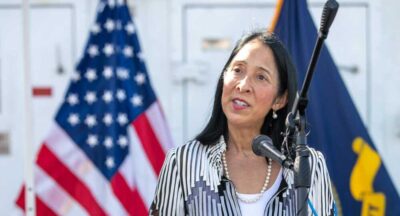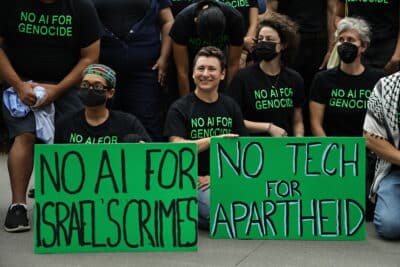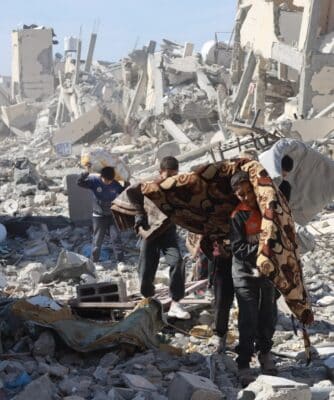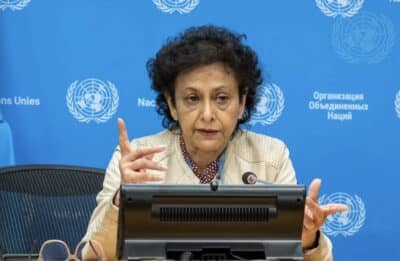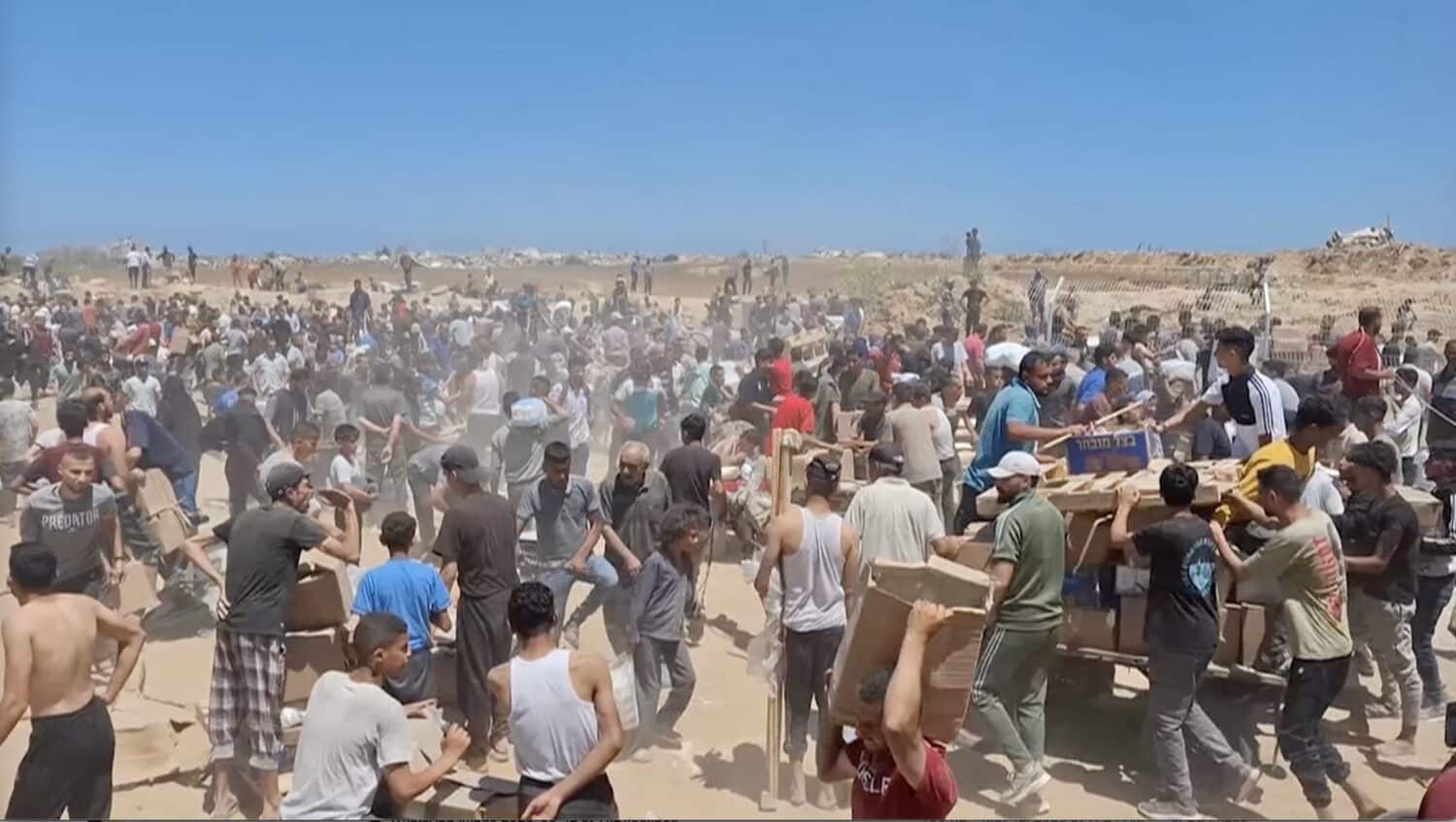
The United Nations has confirmed that the Gaza Humanitarian Foundation (GHF) has asked to meet with its top humanitarian official at headquarters in New York City, as the controversial, privatized aid group pushes hard on the UN to collaborate with food delivery in the besieged Palestinian enclave.
A source with close knowledge of the GHF request told PassBlue that the US-Israeli backed organization sent a letter to the UN’s No. 1 humanitarian official, Emergency Relief Coordinator Tom Fletcher, but the matter has been delegated to an entity in the UN Development System called the Operational Activities for Development.
A GHF meeting with any top UN official, humanitarians say, is a potential risk. Will GHF officials be invited into a meeting at UN headquarters, they ask. Moreover, GHF has never said how a collaboration would work. Even UN messaging on such a meeting would have to be carefully managed.
Stéphane Dujarric, spokesperson for UN Secretary-General António Guterres, confirmed to PassBlue by email that the meeting request was received, but he declined to provide details.
Johnnie Moore, an American and the GHF boss, posted his letter to Fletcher on the group’s social media account in the afternoon on July 22. “We invite the UN to join us in adapting to the realities of this complex environment,” Moore wrote, referring to Gaza. “The people of Gaza simply cannot afford for the world’s largest humanitarian organization to walk away.” Notably, GHF contracts expire at the end of August, according to The Washington Post.
The UN has repeatedly criticized the militarized aid group over its delivery style in Gaza since GHF began handing out food in late May. The UN says GHF does not comply with international humanitarian law and strongly objects to its reliance on armed security firms (also run by Americans) to help manage its four sole distribution hubs while Israeli soldiers reportedly guard the perimeters, situations that increasingly invite deadly chaos.
GHF, established earlier this year with Israel and American support, began working in Gaza on May 27. The operation has been marred by violent killings of Palestinians seeking food at or near the aid hubs. Israel Defense Forces have been reportedly firing on crowds of desperately hungry Palestinians approaching GHF sites, where they hope to receive the group’s branded brown boxes of basic food supplies, some of which require cooking despite the scarcity of fuel and water in the enclave. The boxes go quickly, leaving aid-seekers destitute for possibly another day.
At least 20 people were trampled to death on July 16 at one site, and 32 more were killed by Israeli fire on July 19 as crowds swarmed a UN convoy. Guterres condemned the GHF in June, saying that “any operation that channels desperate civilians into militarized zones is inherently unsafe.”
GHF has noted on its X account its numerous attempts to meet with UN officials and collaborate on aid delivery. In a tweet tagging the World Food Program’s executive director, Cindy McCain, GHF said it had already met with her deputy, Carl Skau, as well as the agency’s team in Jerusalem and Tel Aviv. Yet, aid groups meeting with UN officials outside the organization’s headquarters is not unusual.
GHF’s spokesperson, Chapin Fay, also publicly criticizes the UN for rejecting offers of cooperation, calling its aid method a “failed model.”
The UN continues to stick to its principles, however, even as pressures from GHF intensify. “We do not use armed escorts for our convoys,” Ross Smith, the director of emergency preparedness at the World Food Program, told reporters on July 21, responding to questions as to why GHF is pushing the UN more publicly.
“We do not have any operational relationship with GHF,” he added. “In every context, we talk to many people, but certainly, we do not have an operational agreement with GHF.”
Dulcie Leimbach is a co-founder, with Barbara Crossette, of PassBlue. For PassBlue and other publications, Leimbach has reported from New York and overseas from West Africa (Burkina Faso and Mali) and from Europe (Scotland, Sicily, Vienna, Budapest, Kyiv, Armenia, Iceland, The Hague and Cyprus). She has provided commentary on the UN for BBC World Radio, ARD German TV and Radio, NHK’s English channel, Background Briefing with Ian Masters/KPFK Radio in Los Angeles and the Foreign Press Association.
Previously, she was an editor for the Coalition for the UN Convention Against Corruption; from 2008 to 2011, she was the publications director of the United Nations Association of the USA. Before UNA, Leimbach was an editor at The New York Times for more than 20 years. She began her reporting career in small-town papers in San Diego, Calif., and graduating to the Rocky Mountain News in Denver. Leimbach has been a fellow at the CUNY Graduate Center’s Ralph Bunche Institute for International Studies as well as at Yaddo, the artists’ colony in Saratoga Springs, N.Y.; taught news reporting at Hofstra University; and guest-lectured at the Columbia University Graduate School of Journalism and the CUNY Journalism School. She graduated from the University of Colorado and has an M.F.A. in writing from Warren Wilson College in North Carolina. She lives in Brooklyn, N.Y.



